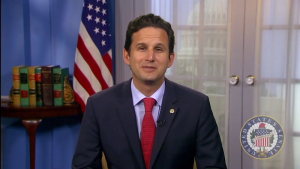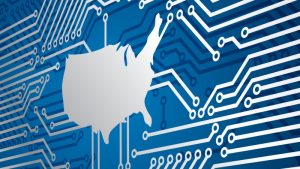The NIST Small Business Cybersecurity Act, S. 770, is heading to President Trump’s desk where he is expected to sign it into law soon.
State-sponsored cyberattacks are the new normal in adversarial international activity, whether on large or small scales.
Today’s House Committee on Oversight and Government Reform (OGR) covered the waterfront on election cybersecurity issues but came up with little that differed much from many of the other election cybersecurity hearings that have happened on the Hill over the last few months. The greatest hits were once again discussed–concerns over involvement in the 2016 election, threats facing the 2018 midterm elections, and how to respond to Russia cyber aggression towards U.S. election infrastructure and technology.
Support for S. 2593, the Secure Elections Act of 2018, is growing in the Senate as four more legislators signed on as cosponsors late last week.
Even as Apple went public yesterday with a new mobile device operating system intended to close security loopholes that law enforcement agencies were using to access locked devices, one digital forensics firm said it found a workaround to bypass the new security features for a cost of about forty bucks.
The zero trust model of IT security has a wide range of applications from protecting government data to helping to secure election infrastructure, panelists said at the Akamai Government Forum on June 14.
A report issued May 31 by the New America Foundation’s Cybersecurity Initiative recommends that the Federal government consider three “priority efforts” to help state governments advance their own efforts to improve cybersecurity, including “designating specific cybersecurity funding that is linked to national priorities.”
When disasters strike, cities need robust recovery plans in place or risk finding themselves in deep trouble, said a municipal CIO and an industry leader during a May 24 webinar hosted by the Center for Government Technology.
Of all the concerns keeping Governors’ Homeland Security Advisors up at night, cybersecurity ranks top of the list.
New York City Mayor Bill de Blasio is setting his sights on cybersecurity this spring. His office recently launched NYC Secure, a cybersecurity initiative aimed at protecting New Yorkers online.













